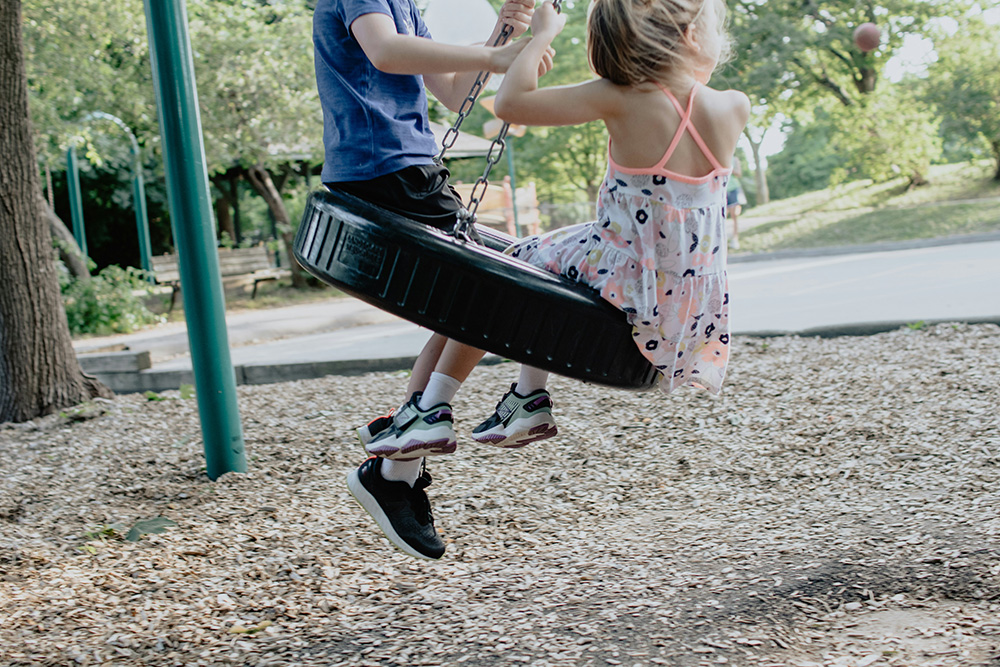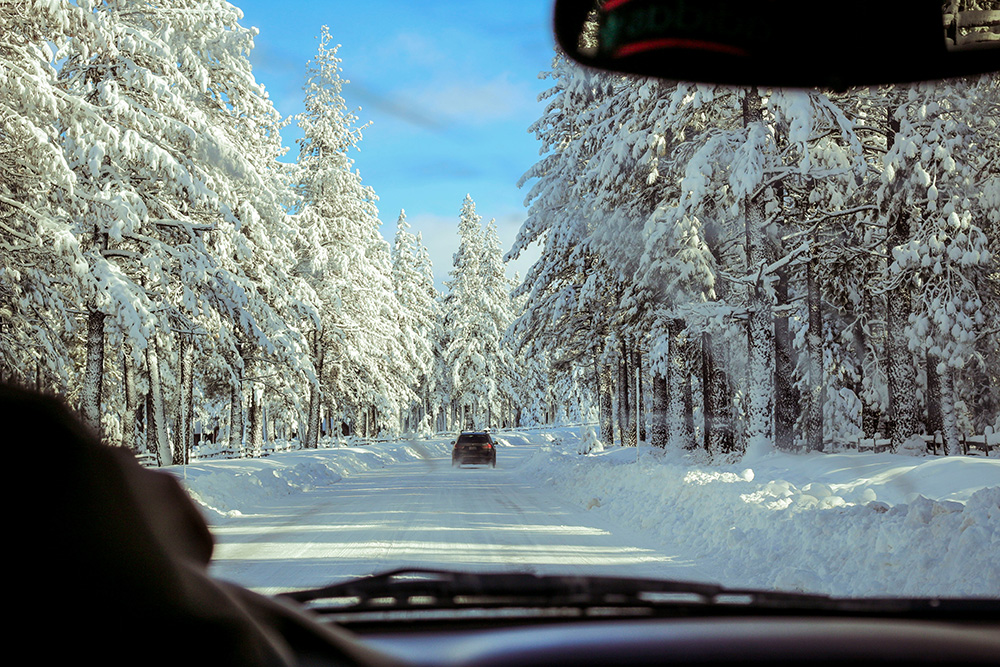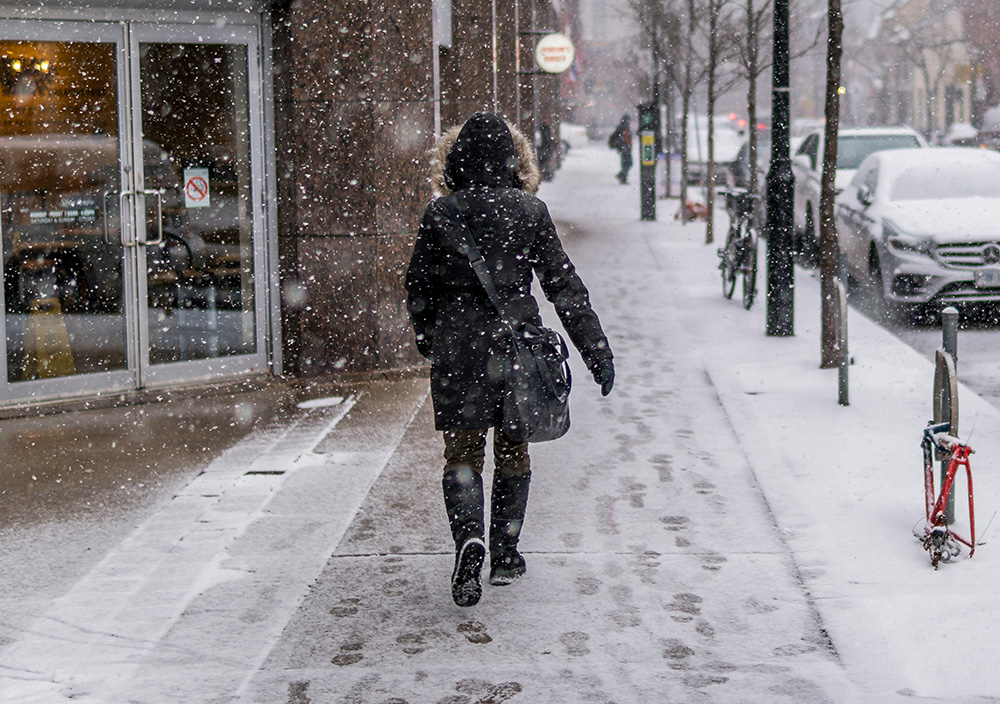
A visit to the playground offers children a chance for a fun day outside. Unfortunately, these visits sometimes end with a trip to the emergency room.
Studies have shown that more than 200,000 children in the United States go to the hospital each year with injuries sustained on the playground, such as concussions or severe lacerations. Broken bones resulting from a fall are the most common injury, and the majority of those injured are ages nine and under.
If your child was injured in a playground accident, you may be able to file a personal injury claim to receive compensation for their medical bills and other costs. These claims can be very complex, and a skilled attorney can provide helpful assistance. In this blog, we’ll explore some of the legal issues that may arise from a playground injury.
Premises liability
Playgrounds can be found at numerous different places, including schools, parks, day care centers, campgrounds, churches, and private homes. No matter who owns the playground, they have a responsibility to keep it safe. A claim against someone in control of a playground must demonstrate that the defendant failed to make sure the playground was reasonably safe to use. An injury may be caused, or worsened, by the following conditions on the premises:
Poor maintenance
The playground owner has a duty to regularly inspect it for any potential safety issues, such as broken equipment or unsafe surfaces. They also have a responsibility to repair these problems in a reasonable amount of time. If the property owner fails to take these steps, they can be held responsible.
Lack of hazard warnings
When a playground hazard is present, the playground owner must take steps to keep visitors away from it until it can be addressed. If they don’t take reasonable steps to warn others, such as putting up barriers or signs, they can be held liable for injuries resulting from the hazard.
Inadequate safety and security measures
The playground owner must take steps to ensure that the premises are safe and secure, especially if there are known issues at the site. Precautionary steps might include putting up fencing to prevent children from walking into a nearby street or installing lights if the playground can be used in the evening.
Products liability
You may also be able to file a claim against those responsible for designing, manufacturing, or constructing the playground. A products liability claim can be filed if one of the following scenarios occurred:
The playground is poorly designed or constructed
Playgrounds must be designed to endure various weather conditions and heavy use. They must also include adequate safety features and be appropriately designed for a specific age range. If there was a design flaw that made the playground inherently unsafe, it can contribute to injuries. If a defective product causes injury, a product seller may be responsible for damages.
Even if a playground is properly designed, errors or flaws in the production process can create unsafe conditions that contribute to injuries. If a manufacturer becomes aware of such a defect, they must issue a timely recall notice and provide proper notification to make the playground owner aware of any potential hazards. Manufacturers can also be held liable if they use substandard materials or other practices that compromise the safety of the playground.
Errors in the construction or installation of a playground can also contribute to injuries. These might include structural instability, loose components, and the exposure of sharp fasteners like screws and bolts.
Regulatory non-compliance
Playgrounds must comply with safety standards and regulations governing playgrounds. These standards can include federal, state, or local codes. Any parties that don’t abide by these standards can be held liable if this non-compliance is a substantial factor in causing an injury.
Failure to warn
Playground equipment usually includes labels warning visitors about certain inherent risks in using the playground. If the manufacturer fails to provide adequate information about potential safety risks, they can be held liable for an injury.
Negligent supervision
Parents have a duty of care to supervise their children at playgrounds, look out for potential hazards, and take reasonable steps to prevent injuries. This duty also extends to adults who supervise children “in loco parentis,” or in place of the parents, such as teachers and day care staff.
The playground owner can be held liable if a staffer did not properly supervise children using the playground. Negligent supervision may include not addressing a safety hazard, failing to stop dangerous behavior, or being absent or distracted when the injury occurs. It can also include the failure of the playground owner to hire qualified staff, maintain adequate staffing levels, provide proper training, or establish proper policies and procedures.
Negligent supervision can sometimes be challenging to prove, as the plaintiff must show that the defendant failed to act reasonably and did not provide an adequate standard of care. This factor can also be less applicable in claims involving older children, who are generally expected to exercise better judgment and not require close supervision.
Other considerations
Depending on the circumstances of the accident, several other issues can come into play when a child is injured on a playground. These might include:
Governmental immunity
Publicly owned playgrounds, including those at schools or parks, have greater protection from legal claims due to government immunity. This protection aims to prevent legal actions against government entities. However, there are certain exceptions to this immunity, which must be investigated to defeat a governmental immunity defense.
Trespassing
There may be clear signs indicating that a playground is not used at certain times, such as after sunset or outside of school hours. If an injury occurred outside of these hours, the defendant may argue that the plaintiff was trespassing and therefore not owed the same duty of care owed to users during normal hours. However, property owners are still responsible for keeping the property in good repair and owe a greater duty of care to children (see below).
Attractive nuisance precautions
Property owners must take precautions to prevent foreseeable harm children may suffer due to property features that may attract children. For example, the owner of a private playground has a duty of care to put up fencing or other deterrents to prevent its unsupervised use.
Shared fault
A defendant may argue that you share some of the fault for your child’s injury. For example, if a child is injured due to unsafe equipment but you were not supervising them at the time they were hurt, the defendant can argue that you were partially to blame. This can result in a reduction in the award received in a settlement or verdict.
Let’s review your case
Personal injury claims involving playground injuries can be complex. If your child has been injured in a playground accident, the attorneys at Anderson Trial Lawyers will sit down with you to discuss the circumstances of the accident and how you might proceed with a claim, and conduct the needed investigation to pursue a claim. Contact us online or call 860.886.8845 to set up a free consultation.

Winter weather conditions can sometimes make for a scary driving experience. Snow, ice, or slush might create slippery road surfaces, which can cause a driver to lose control of their vehicle and crash.
Icy roads can also complicate motor vehicle accident claims. If a driver collides with your vehicle on a slick road, they may argue that they are not liable for your injuries because the dangerous road conditions made the crash impossible to avoid. The condition of the road can also be a factor in determining whether a driver was at fault in an accident, and hence, whether insurance will pay for all damages caused in a crash.
The attorneys at Anderson Trial Lawyers are skilled in handling motor vehicle accident claims of all kinds, including motor vehicle accidents that occur in winter weather. Here are a few factors that commonly come up in these types of claims.
Negligent driver behavior
When you get behind the wheel, you owe a duty of care to drive responsibly — not only for your own safety but for the safety of everyone else on the road. When hazardous conditions are present, this means you must reduce your speed and otherwise use extra caution to reduce the chances of an accident.
For this reason, motor vehicle accident claims primarily focus on the behavior of each driver rather than the road conditions at the time of a crash. Drivers are expected to be aware of any hazards the weather might create — many vehicles even issue a warning that ice might be present when they are started on days with freezing temperatures — and respond accordingly.
If you are involved in an accident with another driver who was not exercising due caution at the time of the crash, they can be held liable for your injuries. Some examples of negligent behavior include:
- Driving too fast for conditions: During hazardous conditions, drivers are expected to slow down to travel at a safe speed — even if their vehicle is equipped with four-wheel drive, snow tires, or other features to help them navigate winter weather. Drivers who travel too fast for conditions may not be able to safely stop on a slippery road.
- Following too closely: Drivers must always maintain a safe following distance from the vehicle in front of them so they can stop, if necessary. During slippery conditions, drivers are expected to increase this following distance to account for reduced traction.
- Inadequate maintenance: A driver’s duty of care includes keeping their vehicle in safe working condition. Certain maintenance issues, such as tires and brakes, will make it more difficult for a driver to operate their vehicle and avoid a crash in icy conditions.
- Failing to take other precautions: A driver might be held liable if they do not take other proper precautions in poor weather conditions, such as using their headlights during low visibility conditions and clearing their windshield of snow and ice.
Factors that limit a driver’s liability
In some cases, a court may decide that a crash resulted from the inherent risks of driving in hazardous weather during the winter, not negligence on a driver’s part. Even if a driver is found to be negligent in a crash, certain factors can limit their liability. These include:
- Unpredictable hazards: If a driver encounters something unusual on a road with little or no warning, they may be able to argue that they did not have adequate time to respond to the hazard.
- Reasonable driving behaviors: A driver may be able to show that the accident occurred even though they were taking the necessary precautions, such as reducing their speed.
- Uncontrollable sliding: Some circumstances, such as a severe ice buildup and sloped roads, can cause vehicles to slide uncontrollably. This can be considered a mitigating factor that reduces a driver’s liability in a crash.
Third-party liability
On public roadways, it is the duty of the state or municipal government to keep the road reasonably clear of snow and ice in order to permit safe travel. They are also responsible for the upkeep of features that can improve road safety and reduce accident severity, such as streetlights and barriers that separate the road from a steep slope.
Governments typically have immunity protections against certain lawsuits, on the principle that excessive litigation could impede the government’s ability to provide services. However, municipal or state governments can still be held liable if they fail to properly maintain a road.
For example, you might show that a town’s public works department failed to sand and salt the road despite adequate warning of potential icing, or that they did not respond to icy conditions in a timely manner. You can also argue that inadequate maintenance of safety features contributed to a more severe accident.
If the crash occurred on a private road, you may be able to file a claim against the entity responsible for maintaining the road. Certain other factors will also affect liability for motor vehicle accidents on private roads, such as contractual agreements between a homeowners association and the party responsible for the upkeep of the road.
Let’s review your case
If you or a loved one have been injured in a motor vehicle accident, the skilled attorneys at Anderson Trial Lawyers can help. We’ll review the circumstances of your accident and help you get the settlement or verdict you deserve. Contact us online or call us at 860.886.8845 to set up a free consultation.

Most of us have had the unpleasant experience of taking a tumble during the winter. Snow and ice create more slippery surfaces, making it more likely that you’ll lose your footing.
Slipping and falling is so common in wintertime that people may consider it a normal part of the season. Yet these incidents can also lead to serious injuries, such as broken bones or traumatic brain injuries, that result in lost wages and expensive medical bills.
Even though falls occur frequently in the winter, you’ll still have grounds for a personal injury claim if another person’s negligence contributed to your accident. However, numerous factors also go into determining liability in a winter slip and fall case, including the property owner’s responsibilities, the injured person’s actions, and the inherent risks of winter weather.
When you have grounds for a personal injury claim
The property owner failed to remove ice and snow
Property owners have a duty of care to keep the premises reasonably safe for visitors. During the winter, that means inspecting areas such as walkways, driveways, and parking lots for snow and ice, and then taking steps to remove it. Although public sidewalks are considered municipal property, local ordinances and statutes typically put the responsibility for snow and ice removal on the abutting property owner. Commercial property owners also have a duty to anticipate inclement weather and prepare accordingly, in addition to maintaining the property after a weather event.
The property owner negligently maintained their property
If a property owner does not maintain their property well, it can lead to hazards such as leaking roofs, improperly draining gutters, or poor drainage. These conditions can cause water to pool and freeze in areas where visitors might walk, increasing the risk of a slip and fall accident. Property owners can also directly create hazards through negligent behavior, such as emptying water onto a nearby sidewalk and allowing it to freeze.
The property owner failed to warn you about the hazard
A property owner can — and should — put up signs or barriers warning people about slippery conditions they know to exist. If the property owner does not take this step, they can be held liable if someone is injured on the property.
When you might not have a claim
The property owner wasn’t negligent
Property owners are not expected to remove every last speck of snow and ice from their property, only to make a reasonable effort to address the hazard. A court may determine that the property owner did their due diligence but that inherently dangerous conditions still remained.
Similarly, property owners are not expected to clear snow and ice as soon as it appears; rather they must address the hazard within a reasonable amount of time. If you slipped and fell while walking during a winter storm, for example, a property owner can’t be held liable because they aren’t expected to clear their property until after this weather has subsided (this is known as the “ongoing storm doctrine”).
Property owners can also sometimes limit, or even eliminate, their liability if they demonstrate that they quickly addressed a hazard once it was reported to them.
You share the blame for your injury
Comparative negligence is an affirmative defense that typically acknowledges that the defendant bears some responsibility for the plaintiff’s injuries, but also argues that the plaintiff is partially to blame due to their own negligent actions. For example, the defendant in a winter slip and fall case might argue that the plaintiff was wearing improper footwear or failed to see the hazard because they were distracted at the time.
If the court determines that you were primarily responsible for your injury (at least 51 percent to blame), you won’t be able to recover damages. If the defendant was primarily to blame, you’ll still be able to file a claim but comparative negligence will reduce the damages you’ll be able to recover.
You slipped and fell on public property
Government entities generally have greater protection against lawsuits. This will limit your ability to file a claim if you slipped and fell at a location such as a government building, public park, or a sidewalk maintained by a municipality.
However, it is still possible to file a claim against a government entity if you follow certain procedures and abide by timelines, and if you can make the case that the government was negligent in its duty of care.
Let’s review your case
If you have been injured in a winter slip and fall accident, the experienced attorneys at Anderson Trial Lawyers can help you with your personal injury claim. Contact us online or call us at 860.886.8845.







